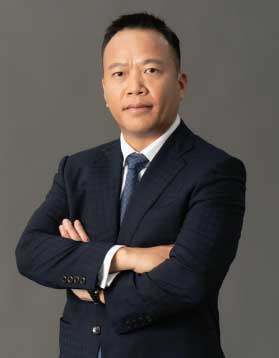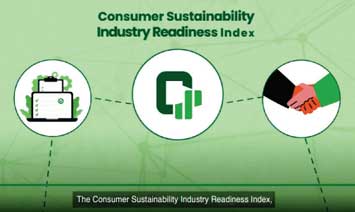ESG: Sustainability turns a new leaf with ESG practices
Beyond merely being a buzzword, ESG considerations are being touted as a transformative force enabling businesses to pivot successfully toward sustainability, reports Angelica Buan in this article, focusing on interviews with Vietnamese chemical firm Stavian Chemical, and Singapore-based ESG stalwart, INCIT (International Centre for Industrial Transformation).
Businesses are increasingly recognising the importance of operating with a broader purpose, acknowledging their impact on the environment, society, and corporate governance. This recognition has propelled the Environmental, Social, and Governance (ESG) framework to the forefront, assessing companies across three key areas: environmental responsibility, social impact, and governance practices.

When considering whether or not to invest in a firm, investors using an ESG framework analyse its ESG features. These investors, who expect companies they hold to commit strongly to ESG criteria and reporting, perform their own ESG research on firms or rely on third-party ESG evaluations.
Evidently, there is a pressing need to address ESG concerns in supply chains. According to accounting firm PwC’s report titled "Asia Pacific’s Time Responding to the New Reality," published in 2022, regulatory changes and identifying supplier risks are major ESG concerns.
Yet, fewer companies prioritise ESG reporting and metrics. Without adequate investment in management capacity and infrastructure, smaller local players risk exclusion from global supply chains due to an inability to meet ESG expectations.
This exclusion could concentrate production in deeper tiers of the supply chain, increasing supply chain risks, and potentially undermining customer trust in case of disruptions.
Plastics and Rubber Asia (PRA) interviewed Vietnam-based chemical distributor and producer of biodegradable plastic packaging Stavian Chemical, and INCIT (International Centre for Industrial Transformation), a Singapore-based ESG institution and independent non-profit entity on advocating manufacturing transformation. Both companies provide insights about ESG, including how they assimilate ESG standards into their businesses and how they foresee ESG impacting the industries in the ASEAN region and globally
Stavian Chemical: meeting the growing demand for green consumption

Stavian Chemical is a contributor to the advancement of manufacturing sustainability, with expertise in key developments within the polyolefins industry in Asia, according to Tony Dinh, Chairman/CEO, who discusses his company's vital role in the industry's expanding sustainability agenda.
The company, ranked among the top 22 global chemical distributors, has evolved into a prominent distributor and producer of resins, plastic finished products, petrochemicals, and chemicals across Asia, Europe, North and Latin America, and Africa. Dinh’s approach has not only positioned the company as a global sustainability benchmark but has also solidified its standing in innovation.
PRA: In response to the increasing focus on environmental issues, can you provide examples of how Stavian Chemical is actively working to improve the sustainability of its chemical supply chain?

Tony Dinh: As a forward-looking organisation, we prioritise our ESG programmes with a strong commitment. We do not view ESG strategy as a checkmark on a "to-do" list of an investment proposal or big fancy words to recruit, but we genuinely incorporate ESG targets into our corporate strategy and business plans, along with financial goals. This is a real challenge, as there will always be a big gap between strategy and implementation plans with actual results.
However, since sustainability is unquestionable, we ensure appropriate resource allocation to promote ESG strategy, and we trust that it's all worth the effort. We're sourcing our suppliers with sustainability targets in mind, using a compliance-driven approach from all perspectives, such as human, social, economic, and environmental impacts.
PRA: How have you integrated ESG principles into your corporate performance practices?
Tony Dinh: We detail our ESG implementation plans in the short, medium, and long term, including carefully considering natural resources or environmental-related business decisions, implementing comprehensive human resource development and structure, and the best corporate performance practices for the company. Specifically, we have established a new business line of biodegradable recycled plastic resin besides highperformance polymer resin trading and distribution.
This is to meet market demand and promote strong green consumption and lifestyles, given the background of tightening regulations from international authorities on recycled raw materials to minimise plastic waste.
As well, we proactively take a Circular Economy approach to develop our end-product portfolio, including biodegradable and plant-based (eg. moulded pulp) packaging products.
INCIT: ESG gaining momentum in the ASEAN
Raimund Klein, CEO of INCIT, shares insights into the pivotal role of ESG in reinforcing companies' sustainability agendas. He also underscores how the ASEAN can derive benefits by incorporating ESG practices to enhance its competitiveness. INCIT provides an array of frameworks and tools to “start, scale, and sustain manufacturing transformation journeys”
These offerings include the Smart Industry Readiness Index (SIRI), said to be the world's first independent digital maturity assessment for manufacturers; the Consumer Sustainability Industry Readiness Index (COSIRI), a comprehensive framework and set of tools designed to help manufacturers embed sustainability into all of their operations. Also included are ManuVate, an innovation platform that enables idea generation across the entire value chain using crowdsourcing principles and Global Executive Industry Talks (GETIT), a thought leadership platform where business leaders may engage with like-minded professionals, experts, and luminaries to discuss the latest industry advancements.
PRA: How do companies/industries incorporate principles into their business practices to contribute to the sustainability agenda? (In the first place, what is the benchmark for sustainability)?
Raimund Klein: ESG is unfortunately challenged by the absence of a clear definition, resulting in a negative perception and its association with greenwashing. The absence of specific guidelines on measuring and improving sustainability/ESG contributes to this issue. Amidst these concerns, the question arises: why transform a company into a sustainable one? An intriguing response provokes thought: "How hot was your summer this year?" - implying the growing relevance of sustainability in our changing climate.
PRA: What are some key ESG metrics and indicators that investors and stakeholders use to evaluate a company's commitment to sustainability?

Raimund Klein: A 360-degree sustainable maturity check involves examining sustainable strategy, sustainable business targets, green business modelling, cash flow allocation, and focusing on sustainable business processes such as energy, water pollution, and land use.
Furthermore, it involves addressing greenhouse gas (GHG) scopes 1 and 2, which cover direct emissions from controlled sources and indirect emissions related to purchased electricity or other resources. Additionally, evaluating GHG scope 3 entails assessing indirect emissions from customer usage or supplier production, considering both upstream and downstream impacts, with a specific focus on optimising each scope individually.
Moving forward, there is a need to create a circular product design and to define the cradle-to-grave process. This phase also involves exploring clean technology utilisation, optimising its usage, and involving the workforce and leadership in ESG target setting and fulfillment.
Meanwhile, 'G' (Governance) is a crucial component in obtaining a 360-degree maturity profile of a company's ESG/Sustainability maturity. Governance, along with physical/ reputational/policy risk mitigation, is also integral to ESG/sustainability considerations.
PRA: How are the countries in ASEAN including ESG principles in their plans to be more sustainable, and what are the results so far?
Raimund Klein: ASEAN member countries are taking various steps to integrate ESG principles into their sustainability plans. ESG considerations have gained importance in the region due to increasing awareness of environmental and social challenges, as well as the recognition of the role of good governance in achieving sustainable development.
Here are some ways in which ASEAN countries are integrating ESG principles: Several ASEAN countries were working on or had already implemented regulations and policies related to ESG reporting and disclosure. For instance, Singapore introduced mandatory sustainability reporting guidelines, and Indonesia developed a roadmap for sustainable finance.
Some ASEAN countries are promoting green finance initiatives, including the issuance of green bonds and the establishment of green investment funds to support environmentally sustainable projects. Improved corporate governance was a focus, with efforts to enhance transparency, accountability, and shareholder rights. This was aimed at fostering investor confidence and attracting responsible investments.
Thus, ASEAN countries are increasingly turning to technology and innovation to tackle environmental and social challenges. This involves promoting innovation in sustainable agriculture, clean energy, and the development of smart cities.
PRA: What specific ESG challenges and opportunities do ASEAN countries face, and how do these impact the region's overall sustainability goals and economic development?
Raimund Klein: Looking at industries in ASEAN and globally, there aren’t much differences. The primary focus is on economic development, followed by sustainability and supply chain resilience.
The biggest challenge is that emerging countries within ASEAN need to focus on economic development; and sustainability may be a competing target, potentially hindering the focus on productivity. When we look at INCIT’s COSIRI ESG star rating, the significant issue lies in companies' inability to establish a baseline for measuring the GHG emissions in scopes 1, 2, and 3 at their production sites and across supply/distribution channels.
PRA: How can cross-border collaboration and partnerships between ASEAN nations help address ESGrelated issues and contribute to a more sustainable and resilient regional economy?

Raimund Klein: ASEAN nations can share their experiences and best practices in ESG-related initiatives. This knowledge exchange can facilitate mutual learning among countries and enable the adoption of effective strategies to address environmental, social, and governance challenges.
Collaboration can enhance the efficient mobilisation of resources. Through collective efforts, ASEAN nations could harness their combined financial and human resources to tackle large-scale ESG projects, such as the development of renewable energy, infrastructure upgrades, and social welfare programmes.
Moreover, ASEAN countries can collaborate to harmonise ESG-related regulations and standards. This consistency can make it easier for businesses to operate across borders and encourage greater foreign investment, ultimately fostering sustainable economic growth.
Transforming certain negative aspects can lead to the positive development of regional ESG frameworks, aiding in aligning the goals and strategies of member states. This alignment can enable coordinated action on regional challenges such as climate change, water resource management, or the growing necessity for disaster resilience.
Additionally, ASEAN cooperation can enable the transfer of sustainable technologies among member states. This may include sharing innovations in renewable energy, waste management, and green transportation, contributing to economic growth while mitigating environmental impacts. Such advancements could also positively impact export businesses.
PRA: What strategies can ASEAN adopt to align skilled labour development with ESG principles to attract more investments and/or improve economic resilience?
Raimund Klein: Looking at our COSIRI prioritisation index, developing human capital is vital for addressing ESG issues. ASEAN nations can collaborate on education and training programmes to build expertise in ESG fields, ensuring a skilled workforce capable of managing and implementing sustainable practices in factories.
Observing the results of COSIRI in climate risk mitigation, resilience, and disaster preparedness, ASEAN nations can reduce economic risks linked with natural disasters, policy mandates, and the physical climaterelated risks within industries.
Ultimately, the utilisation of ESG standards such as COSIRI is poised to bolster investor confidence in the ASEAN region. This could attract responsible investment, fostering economic growth and aligning with prevailing global ESG trends.
PRA: How does the integration of ESG factors in ASEAN's sustainability agenda impact foreign investment, trade relationships, and the region's attractiveness as a destination for sustainable development projects?
Raimund Klein: Well, that's not a question – it's more like a must-have statement. If you're not producing in a circular manner or integrating ESG into your organisation in the future, I would predict you will likely be out of scope in five to ten years. Your production would become obsolete!
(PRA)
Subscribe to Get the Latest Updates from PRA Please click here
©2023 Plastics and Rubber Asia. All rights reserved.

©2023 Plastics and Rubber Asia. All rights reserved.
Home Terms & Conditions Privacy Policy Webmail Site Map About Us
















